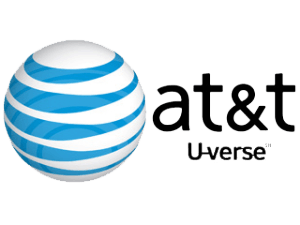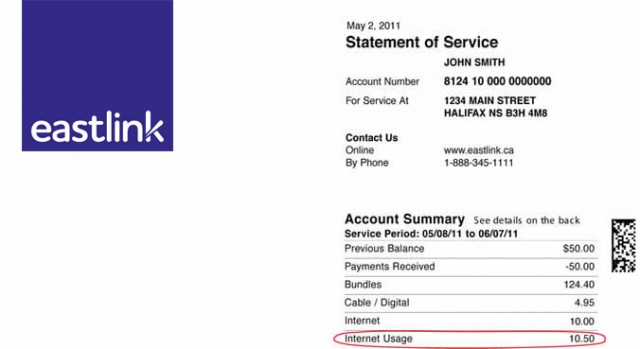 AT&T and Verizon have forced some of their customers to abandon DSL service in favor of fiber upgrades that are sometimes not actually up and running or leave customers with no phone service during power outages.
AT&T and Verizon have forced some of their customers to abandon DSL service in favor of fiber upgrades that are sometimes not actually up and running or leave customers with no phone service during power outages.
Wall, N.J. resident James Hallock found his DSL service suddenly stopped working earlier this month, so he called Verizon Communications to get service restored.
“A Verizon tech explained that the service was no longer being offered,” Hallock said.
The termination of his DSL service came with no prior notification, complained Hallock, and Verizon told him his only way back to broadband with the phone company was a forced upgrade to a more costly FiOS package that included phone service that won’t work during power outages.
“In the last outage I saw, people were out of electricity for weeks,” Hallock told the Asbury Park Press in an email. “I don’t believe it’s true that we have to give up traditional phone service, but try spending hours on the phone with Verizon to find out.”
Verizon spokesman Lee J. Gierczynski told the newspaper, “We don’t discontinue a customer’s service without notification, so we’ll have to find out more about what specifically is going on with this customer.”
 But Verizon’s CEO says the company is embarked on a plan to rid itself of its copper wire network, especially where FiOS fiber exists.
But Verizon’s CEO says the company is embarked on a plan to rid itself of its copper wire network, especially where FiOS fiber exists.
“Every place we have FiOS, we are going to kill the copper,” Verizon CEO Lowell McAdam told attendees of an investor conference last year. “We are going to just take it out of service. Areas that are more rural and more sparsely populated, we have got LTE built that will handle all of those services and so we are going to cut the copper off there.”
Jackie Patterson, another Verizon customer, found her DSL service suddenly stopped working on Christmas Day.
“Verizon said that they were discontinuing the service and we had to get FIOS Internet (no more DSL) and FiOS phone service,” Patterson said. “I liked the idea that we still had phone service during blackouts — like during Sandy — but now we won’t be able to have that with FIOS.”

AT&T has been doing its part to cut off DSL customers as well. One AT&T customer reported her AT&T DSL service was suddenly terminated without notice in October, 2012 because her neighborhood was scheduled to be upgraded to U-verse, AT&T’s fiber to the neighborhood service. Five months later, AT&T’s U-verse network is still not available, despite the “forcible upgrade,” and nobody at AT&T can tell when it ultimately will be.
“It’ll be resolved on February 22nd,” AT&T promised back in December — two months after Brie’s service initially went dead, she tells The Consumerist.
“A representative showed up today to complete our installation,” complained Brie. “Guess what he found? The lines outside aren’t working. And guess what he told me? He’d talk to his manager. He’d escalate it. He’d get engineering out. He didn’t know how to fix it. He couldn’t tell me when or how or what needed to be done and no timetable as to when the work would be complete.”
Unfortunately for Brie, switching to the local cable company isn’t an option – it doesn’t offer service to her home.


 Subscribe
Subscribe



 “Ontario gets the worst when it comes to competitiveness,” Michael Geist, a law professor at the University of Ottawa and Canada Research Chair in Internet and e-commerce law told CBC News. “It tends to be the least competitive when it comes to getting bang for your buck.”
“Ontario gets the worst when it comes to competitiveness,” Michael Geist, a law professor at the University of Ottawa and Canada Research Chair in Internet and e-commerce law told CBC News. “It tends to be the least competitive when it comes to getting bang for your buck.”
 More than 20 cable systems across Kansas will be terminating television and broadband service after a private equity firm, working with former Bresnan Cable executives, deemed them unprofitable and not worth upgrading.
More than 20 cable systems across Kansas will be terminating television and broadband service after a private equity firm, working with former Bresnan Cable executives, deemed them unprofitable and not worth upgrading.

 The Georgia Municipal Association notes local governments in small towns and cities, already strapped for resources, would have to prove to the Georgia Public Service Commission that each census block a community wants to serve has no existing broadband service (census blocks are the smallest geographic area the Census Bureau uses for data collection.)
The Georgia Municipal Association notes local governments in small towns and cities, already strapped for resources, would have to prove to the Georgia Public Service Commission that each census block a community wants to serve has no existing broadband service (census blocks are the smallest geographic area the Census Bureau uses for data collection.) The final report of Gov. Nathan Deal’s Competitive Initiative found rural Georgia at a disadvantage simply because many communities cannot get broadband service. Several regions in Georgia called on Deal’s office to help improve inadequate broadband infrastructure.
The final report of Gov. Nathan Deal’s Competitive Initiative found rural Georgia at a disadvantage simply because many communities cannot get broadband service. Several regions in Georgia called on Deal’s office to help improve inadequate broadband infrastructure.